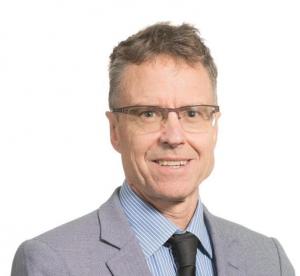Walwyn, David R. | South Africa

David Walwyn is a Professor in the Graduate School of Technology Management at the University of Pretoria. He has a B.Sc. Chemical Engineering from the University of Cape Town and a PhD in Organic Chemistry from the University of Cambridge. His research interests cover sustainability transitions, renewable energy, science and innovation policy, research management and industry localisation. He currently teaches courses in engineering economics and energy value chains, and supervises at least 15 Masters/PhD students each year on the management of technology programme offered by the University of Pretoria. He has published widely in several areas; details are listed at https://www.researchgate.net/profile/David_Walwyn).
Project at IAS-STS: The Techno-Economics of Renewable Energy Systems; Accelerating Sustainability Transitions Through Policy Mix Design and Cost Optimisation
South Africa is characterised as a country with a high level of per capita emissions, a fragile and inefficient energy system, and a weak economy, all of which make the energy transition an unlikely process unless innovative and affordable solutions can be found. The goal of the project is to explore low carbon and low-cost options to support the decarbonisation of South Africa’s energy system. The project builds on three overlapping but distinct studies already completed as follows; (1) Policy mixes to support innovation and sustainability transitions (Walwyn and Naidoo, 2019; Walwyn, 2016), (2) Techno-economics of energy systems (Stephens and Walwyn, 2020; Stephens and Walwyn, 2018; Walwyn et al., 2018; Chudy et al., 2015), and (3) Sustainability (energy) transitions in South Africa (Potts and Walwyn, 2020). This project aligns closely with the focus of the IAS-STS research area on “Towards Low-Carbon Energy and Mobility Systems”, with specific relevance to the objective of shaping policies related to sustainable energy, mobility, climate and technology policies and the mitigation of climate change.
Contact: david [punkt] walwyn
 up [punkt] ac [punkt] za
up [punkt] ac [punkt] za
Selected Publications
Potts, S. & Walwyn, D. 2020. An exploratory study of the South African concentrated solar power sector using the technological innovation systems framework. Journal of Energy in Southern Africa, 31(2), pp 1-18. doi: https://journals.co.za/doi/pdf/10.17159/2413-3051/2020/v31i2a7725
Stephens, A. & Walwyn, D. R. 2018. Wind Energy in the United Kingdom: Modelling the Effect of Increases in Installed Capacity on Generation Efficiencies. Renewable Energy Focus, 27(Dec 2018), pp 44-58. doi: 10.17632/rs8n356tpk
Walwyn, D. R. 2016. The Use of the Technological Innovation Systems Framework to Identify the Critical Factors for a Successful Sustainability Transition to Rooftop Solar in Low-Income Communities within South Africa. In: Zobaa, A. F., Afifi, S. N. & Pisica, I. (Eds.) Sustainable Energy - Technological Issues, Applications and Case Studies. Rijeka: InTech, Ch, pp Ch. 03.
Walwyn, D. R., Bertoldi, A. & Gable, C. 2018. Building the Hydrogen Economy through Niche Experimentation and Digitalisation. Journal of Manufacturing Technology Management, pp. doi: 10.1108/JMTM-11-2017-0247
Walwyn, D. R. & Naidoo, S. 2019. Policy mixes and overcoming challenges to innovation in developing countries: Insights from a mixed methods study of South Africa’s manufacturing sector. African Journal of Science, Technology, Innovation and Development, 11(6), pp 1-14. doi: https://www.tandfonline.com/doi/full/10.1080/20421338.2019.1610250
